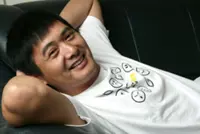A Chinese snack shop that advertises “placenta processing” services and sells capsules made from afterbirth, purportedly to boost health, has sparked criticism and an official investigation.
The controversy came to light on April 6 when a netizen shared online that Auntie Congee’s Snack Shop, near the Changzhou Hospital of Traditional Chinese Medicine in Jiangsu province, southeastern China, was allegedly processing human placentas and selling them in capsule form.





